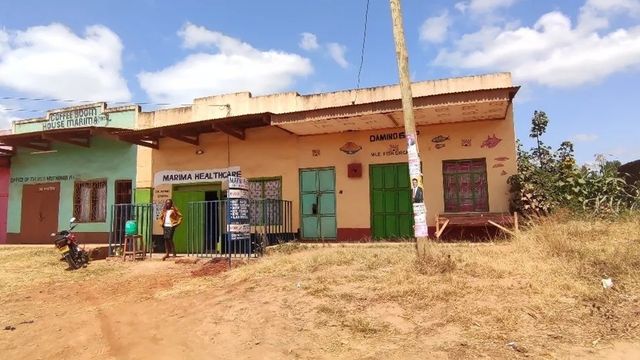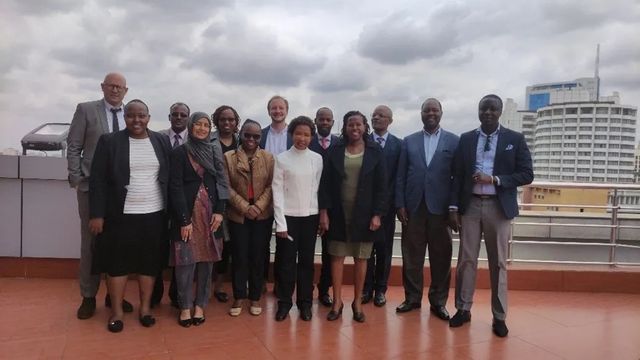SDSN’s FELD Catalyst Kicks off Collaboration with SDSN Kenya and Food and Land Use Coalition (FOLU)
Catalyzing food and land use transformation in Kenya
During a mission to Kenya in June and July, members of the SDSN Food, Environment, Land and Development ( FELD ) Programme connected with SDSN Kenya , a rich network of more than a dozen universities and research institutions across Kenya created in September 2020. Under a new project funded by the German Robert Bosch Stiftung , the SDSN-led FELD Catalyst aims to support and accelerate locally-driven, evidence-based policy processes in countries like Kenya to adapt and transform existing food and land use systems in line with the SDGs and Paris climate targets.
By connecting efforts of the global Food and Land use Coalition (FOLU) to support locally-driven food and land use transformation in Kenya with the experts and institutions of the SDSN Kenya network, the FELD team aims to strengthen national policy dialogue around the development and implementation of local solutions to help Kenya adapt to a warming climate, strengthen rural development, and scale up natural climate solutions across the country.
While Sub-Saharan countries like Kenya contribute only marginally to global greenhouse gas emissions, many of them are already beginning to feel the implications of severe droughts that threaten development gains of past decades and have populations depend on humanitarian emergency supplies.
SDSN as a FOLU core partner is working closely with other partners, especially the World Resources Institute (WRI) , AGRA and GAIN , to prepare the establishment of a dedicated FOLU Kenya country platform in support of joint local and international stakeholder efforts to advance systemic adaptations to Kenya’s food, eco and land use systems. The new platform will complement existing government-led sectoral mechanisms around agriculture and rural development, with cross-sectoral dialogue around policy priorities and ways to accelerate the implementation of concrete policy measures, e.g. around climate smart agriculture and agroforestry. The platform will also help localise and link the targets and commitments made as part of Kenya’s national determined contribution (NDC) with mainstream national development and budget frameworks. FELD will help facilitate the process with joint analyses of existing policy and governance contexts across relevant sectors, and practical guidance and joint capacity building with SDSN Kenya partners on the practical operationalization of targets into sectoral implementation plans and programs.
A growing crisis of climate change and global vulnerabilities
Kenya’s food and land use systems are in a critical state. The country has been experiencing a prolonged drought which further reduced the productivity of its available arable land (only 10% of the country’s land surface). At the same time, more and more agricultural land around cities is being converted for urban development, as investors are enticed by the prospect of higher returns. Kenya remains also an important producer of coffee, tea and flowers for international markets, especially in Europe. While important as cash crops, they do little to ensure food security in the country. Prices for most food commodities and fertilisers keep rising quickly, especially since the war in Ukraine started, which reinforced the dependency of many countries for wheat, oil and fertilisers, and their vulnerability to events far away.
Sustainable development in Kenya thus requires urgent action and concrete policies and programs domestically, as well as support from international institutions and donors in the North who also increasingly look to Kenya for natural climate solutions to help mitigate historical and current carbon emissions by industrial countries. The increased urgency and global attention to climate action presents not only an opportunity for renewed action on the SDGs and sustainable development in Kenya and Sub-Saharan Africa; it also underlines the historic and political obligation of developed countries to fulfil past commitments for development, adaptation and climate financing to deal with existing impact and facilitate costly transition processes of key economic and other systems.Once famous for its forests, Kenya has lost most of its trees in recent decades. Today, less than 8 per cent of the country is covered by trees – in face of an existing national target of 10 per cent and future efforts to reach 30 per cent in the face of reduced rainfall and increasing temperatures. Of course, Kenya has long been at the forefront of environmentalism, especially of community-driven ecosystem restoration – not just to “save the forests” but as a way to drive community development and ensure food security. The Green Belt Movement, founded by Wangari Maathai in the 1970s famously started the simple yet powerful idea of grassroots tree planting. As first African woman to receive the Nobel Peace Prize in 2004, she had inspired many Kenyans and organizations that have been following her example. The Wangari Maathai Institute of Peace and Environmental Studies outside of Nairobi is also part of the SDSN Kenya network and committed to join others in renewed efforts to drive policy and implementation action on food and land use in Kenya.

